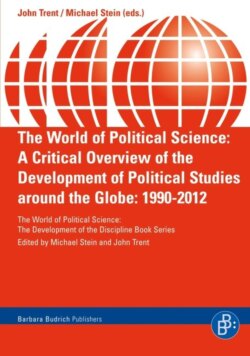Читать книгу The World of Political Science - Группа авторов - Страница 19
На сайте Литреса книга снята с продажи.
4.4. Profile of Key Political Scientists
ОглавлениеIf I single out one Korean political scientist from each of the four periods, the 1948-1961 period, the 1961-1981 period, the 1981-1987 period and thereafter, they are Chun Joo Yun, Hakjoon Kim, Jang Jip Choi, and Doh Chull Shin. Looking at the list, one cannot help sense what Chung-In Moon calls the “neo-colonial” nature of Korean political science. Chun Joo Yun did a major empirical work introducing American political science as appled to Korea. Hakjoon Kim performed a herculean task of seeking truth and serving the military government well. Jang Jip Choi wrote a major critical work of Korean politics. Doh Chull Shin produced major works on Korean democracy. But he resides in the United States, rather than in Korea. His perspective is therefore more of an American than of a Korean political scientist. Jung-Bock Lee (1999) has criticized the fact that Korean political science has no independent basis and instead responds to American political science. To quote Lee:
“There exists no single standard textbook on Korean politics. This is because the accumulation of sufficient knowledge on every period and aspect of contemporary Korean politics has not been made yet. The study of Korean political thought has been recently activated. In Japanese political science also basically imported from abroad, Japanese political history and Japanese political thought are leading subfields. Maruyama Masao studied these subjects and served as the mental pillar for Japanese political science. The Korean political scientists have no such figure.” (Lee 1999, p. 563).
Aside from this “neo-colonial” aspect of Korean political science, one can be optimistic about its prospects. They have become much more confident of themselves in terms of their conceptualization and presentation on the world stage. One cannot be too pessimistic about the prospect of Korean political science. As a matter of fact, since 1989 the development of political science in Korea has been impressive. The range of subjects dealt with in their works has broadened. Nothing is too imposing or is viewed as an inviolable sanctuary now. At the same time, the subjects that deal with and depict third-wave democracy’s malaise have naturally become most popular ones. In English language publications, one can easily cite Chung-In Moon (1999) on political economy, Sunhyuk Kim (2000) and John Kie-Chiang Oh (1999) on democratization, Doh Chull Shin (2001) on third wave democratization, Meredith Woo-Cumings (1997) on the developmental state, David Kang (2005) on corruption, and Samuel Kim (2001) on globalization under this rubric. Many of them have been deeply influenced by American paradigms such as the developmental state and democratic transition and consolidation. Outside this rubric, Katherine Moon (1997) combines gender, identity, security and democracy, Jae-ho Chung (2000) focuses on Korean local-central government dynamics, Victor Cha (2000) focuses on security, and Jonryn Mo (1999) brings in rational choice and institutionalism into his work on Korean democracy.
Needless to say, there are a vast number of political scientists who write mostly in Korean. Though there are some 1000 America Ph.D.s in Korea, most of them start to write mostly in Korean only, once they get their job at home. In tandem with the departure from English publications, the style and flavor as well as content of American political science seems to be reduced considerably. In other words, most of them are quickly endogenized. Despite the appearance of being most heavily Americanized of the three, Korea, China and Japan, Americanization in Korea may not run so deep. However, in 2002 the rule was promulgated by the Ministry of Education to the effect that the frequency of citations in the Social Science Citation Index is one of the important pieces of evidence on which the evaluation of academic performance should be made. That could further enhance the penetration of American political science. In part responding to the newly introduced rule, English-language journals have been springing up, like the Journal of East Asian Studies with Byung Kook Kim as founding editor from Lynne Rienner Publishers. Among those who mostly write in Korean are those who write most powerfully and sharply: Choi Jang Jip (1990) on the state and social movements, Myunglin Park (1996) on the Korean War and Young-sun Ha (2000) on globalization.
